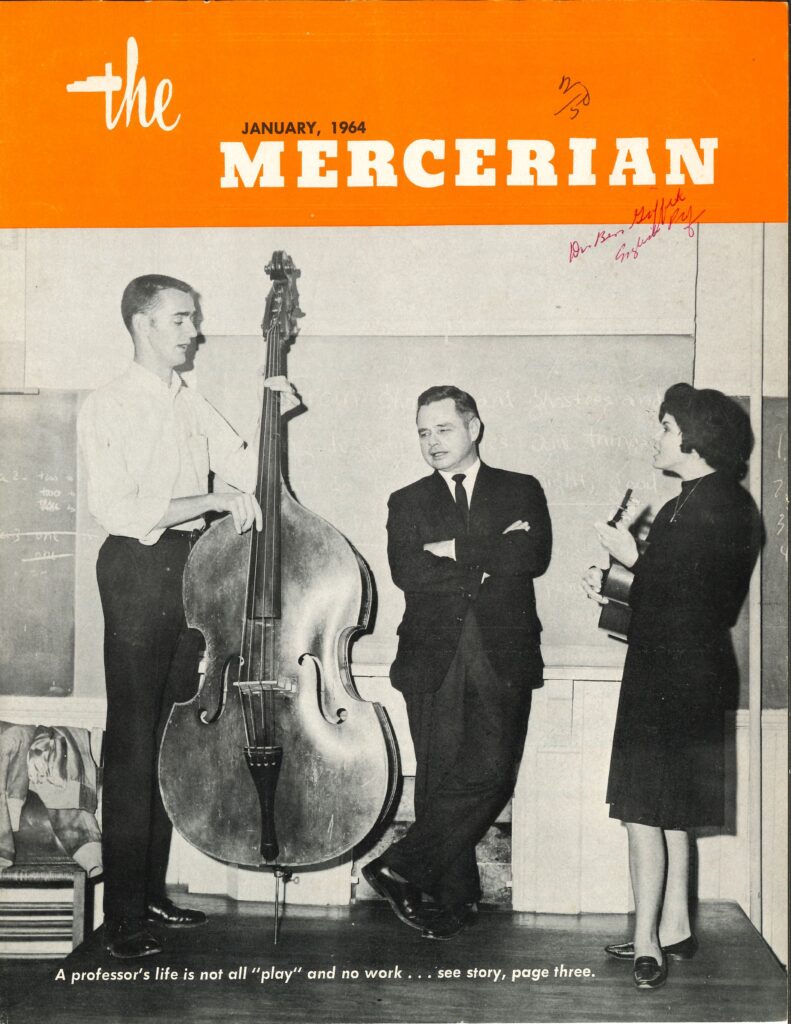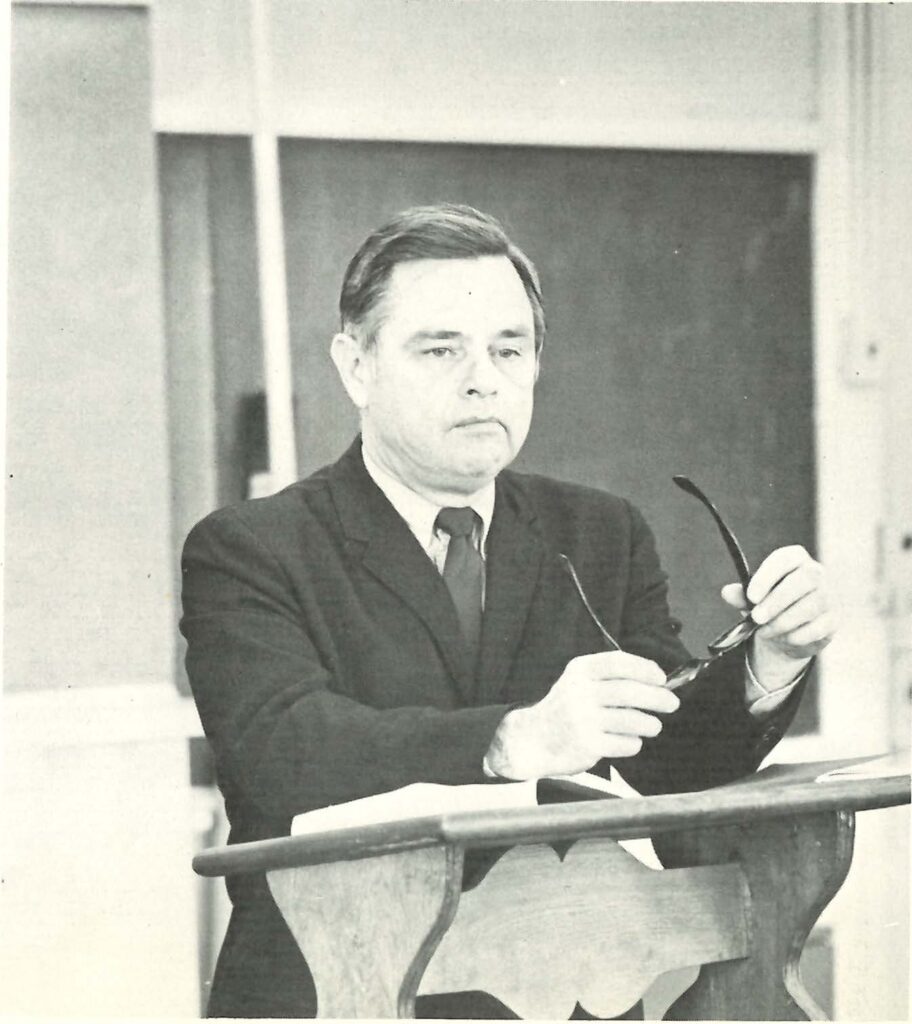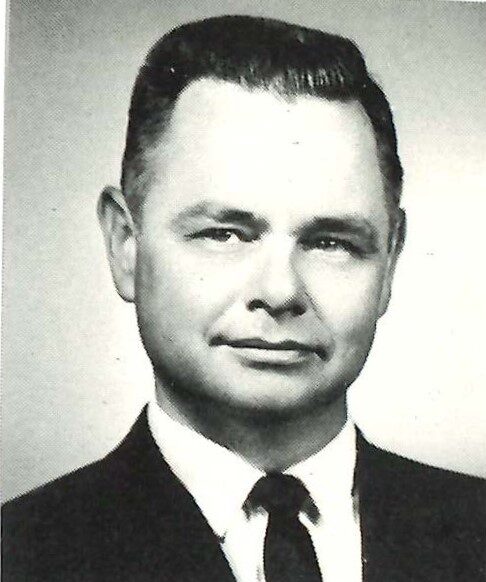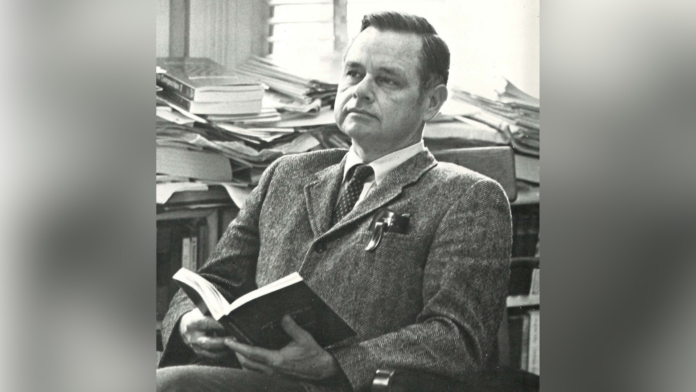Dr. Benjamin Woodward Griffith Jr. left his mark on the Mercer University community and beyond as a gentle professor, a talented writer, a dedicated scholar and a passionate folk musician. Here’s how he became a Mercer Legend.
Dr. Benjamin Woodward Griffith Jr.
Mercer connection: Alumnus, chair and professor of the English department, Board of Trustees member

Years at Mercer: Mercer graduate, 1944; faculty member, 1955-1970.
What he did: Dr. Griffith was born in Lanett, Alabama, and earned his Bachelor of Arts at Mercer in 1944, followed by master’s and doctoral degrees at Northwestern University in 1948 and 1952. In between his degrees, he served in the U.S. Navy for three years, including as a lieutenant during World War II.
He taught at the former Tift College for five years and served as a visiting scholar at Duke University for a year before joining the faculty of Mercer’s English department. He was the Pollock Professor of English from 1955-1970 and became chair of the department in 1961.
Dr. Griffith also chaired the Lamar Lectures committee, coached Mercer’s golf team for several years, and led a Mercer folk singing group. Later, he became a member of the University’s Board of Trustees and the Mercer University Press Board of Directors. In 1970, he left Mercer for West Georgia College, where he served as English professor and chair and then graduate school dean before retiring in 1987.
In 2001, Mercer established the Benjamin W. Griffith Jr. Endowed Chair of English and Faculty Research Development Fund. Dr. Griffith, who had two children with wife Betty Irvine Griffith, died in 2016 at age 94.


Why he’s a legend: Dr. Griffith’s interest in literature was piqued as a Mercer student in Dr. Fred L. Jones’s class. When he joined Mercer’s English faculty years later, he was pleased to be assigned to the same office that this influential faculty member had once occupied.
Dr. Griffith was a revered member of the Mercer faculty. His patient and restrained approach to teaching earned him the nickname “Gentle Ben” from his students. He didn’t just teach English and literature; he practiced it through regular writing and scholarly research and was eager to share his passion with others. He was a gifted writer and was recognized nationally and internationally as a specialist in the field of 19th century literature.

He published more than 50 scholarly articles on literary figures, including John Keats, Robert Frost, Charles Dickens and E.E. Cummings. Dr. Griffith was close friends with author Flannery O’Connor, and some of his correspondence with her was published in a collection of her letters, The Habit of Being. In the late 1990s and early 2000s, he hosted periodic academic symposiums in Milledgeville in celebration of the late author.
In addition, Dr. Griffith authored four books, edited three books, and wrote book and movie reviews and columns for The New York Herald-Tribune and a number of Georgia newspapers.
He also wrote a two-act play called The Murder of Chief McIntosh and a play called Christmas Eve Among Friends that was performed by Theatre Macon in 2007.
Dr. Griffith’s love of literature melded well with his interest in folk music. He played guitar, dulcimer, banjo and autoharp and presented lectures on the music genre. He wrote articles for folklore journals and founded and directed the Georgia Collegiate Folksong Festival. He also wrote the lyrics for a Christmas song called “Come and See the Babe” that was published by Broadman Press in 1982.
Quotable: “He is indeed the personification of the professor in that his entire personality is fraught with the atmosphere of the cool and methodical professional. He sees the student as a direct participant in the classroom situation and has repudiated the lecture method in favor of a more Socratic procedure.” — 1969 Cauldron
Mercer Legends is a series that highlights iconic figures who left a lasting impact on the University and its faculty, staff and students, as well as the community.









